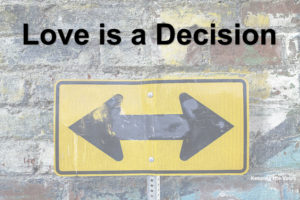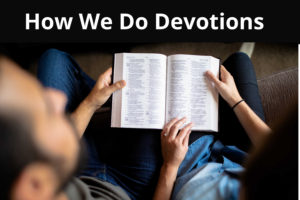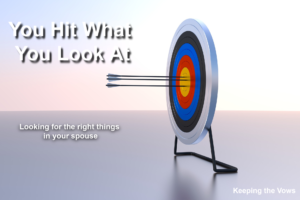Love is a Decision

Love is a Decision
If I asked you to define what love is, what would you say? We have heard thousands of songs about love. It is one of the most common themes in music. We have known about the concept of love our whole life. Many of us may say we have been or are in love. So define it. What is it? Think about it and come up with your definition of love. The thing I have learned is that most of us find love hard to describe.
I have a propensity to go to the root of things and see what they are made of. I also love to travel and learn from other cultures. Here’s what I learned about love in India. I took our son Silas to India for two weeks and our driver’s name was Pankaj. Pankaj was the sweetest man who was always looking out for our best interests. His sincerity was honest and made us feel honored and respected. He took us to his aunt’s home and we had the privilege of meeting his aunt and two nieces. In the conversation, he mentioned that he had an arranged marriage. Since I love to learn from others, I engaged him in the topic.
What we learned is that in an arranged marriage, the fathers agree ahead of time on a match and then the couple usually meets at least one time before the marriage. In different regions, they have different expectations. It used to be more of a done-deal when the parents set it up. Now it is more common for the couple to meet maybe a few times and have a say in it themselves as to whether they get married. There was some talk between his nieces and Pankaj where they claimed he met his future wife a time or two before the wedding and he claimed not. He said that he and his wife had been married for seven years. I asked him if he loved his wife, and he replied yes. I then asked how long it took to fall in love with her. After a bit of thought, he said maybe three years or so.
Here’s Pankaj’s story. I copied it from my blog so it should be pretty accurate. When he was twenty-three, his father came to him and told him he had found a wife for him. His father had not asked his opinion on the matter, and Pankaj was fine with this. This is how things are done in the region where he lives. The girl’s father came and spent time observing Pankaj and asked him whether he drank or smoked and what he did for a living. He finally won the father’s approval. Next, Pankaj’s father went and spent time observing the girl (who was also 23 years old).
His father brought a picture of her back to Pankaj and told him the marriage was arranged and asked if he would like to see a picture of his wife to be. Pankaj answered, “No father, I trust you,” and didn’t look at the photo. Now, being from America, that is just amazing to me! So the first time Pankaj met or saw his wife was on their wedding day. We asked him what they talked about on their wedding night and if the conversation was awkward. He said that they just talked about their families and she asked if he had had any girlfriends and he asked if she had had any boyfriends. Both said no. Si and I thought that was amusing.
I asked about the divorce rate for arranged marriages in India. Pankaj told me that arranged marriages in India have a 95% survival rate. In contrast to that, “love” marriages only have a 50% survival rate in India. I asked him why the divorce rate was so much lower for arranged marriages. Pankaj answered, “If you fall in love and get married, when you fall out of love you get divorced. When you have an arranged marriage, you would bring dishonor to your families to get a divorce, so you make the decision to love and to stay married.”
This challenged the way I looked at love. I had never been a fan of Cinderella and the concept of “and they lived happily ever after.” I have always had an issue with love and marriage as a fairy tale and I wonder if we don’t set our kids’ future marriages up for failure with that mindset. Here in America, I was brought up with songs and movies that demonstrated love was a feeling and emotion. In reassessing love and the much lower divorce rate for arranged marriages, I had to reprogram my thinking: what if love is more of a decision than a feeling or emotion? Feelings and emotions come and go. They are like the waves of the ocean. I thought about what I learned as a young Christian when I read James Dobson’s book Emotions, Can You Trust Them?
So, I asked myself, what if love is a decision? What would that look like? At first reasoning, love being a decision would take the fire and passion out of a relationship. After considering it for some time, I considered that that might be backward thinking. It has been proposed that a woman’s greatest need is to know she is loved and a man’s greatest need is to be respected or needed. I agree with this. So, I reasoned that if one of Kim’s primary needs is to be loved, how would it impact her if she knew that she was always going to be loved by me? In other words, she never had to doubt that I would love her for as long as I have breath. Kim and I both believe that her being assured of love creates a lot of passion in our relationship.
In other words, when we say “I do,” it’s done, finished. The mold has been cast. Divorce is a word that has left our vocabulary. We will never be separated apart from death. Further contemplation made me realize that as a man I also like this concept. I really desire to know that Kim will need me as long as she has breath, and she really desires to know that I will love her and care for her as long as I have breath.
What we are considering here is an unconditional love that will transcend time and situations. Where have we heard that before? Since we are made in God’s image and we are to be disciples or imitators of God, we are to love like Him. Let’s look into God’s Word to see how we are to love. John 13:34-35 says, “So now I am giving you a new commandment: Love each other. Just as I have loved you, you should love each other. Your love for one another will prove to the world that you are my disciples.” God is the ultimate lover.
Although we are created in God’s image and saved by His grace, our propensity to sin is still intact. As in many areas of our lives, we need to address it. Love is no exception. On one hand, I can only imagine that it would be easier to love a person who is without sin. On the other hand, Jesus was sinless and people hated Him, but that’s not the point. The point is that Jesus loved people, even though they were sinners and even if they didn’t love Him.
1 Peter 4:8 tells us, “Above all, love each other deeply because love covers over a multitude of sins.” One could only reason that if we were to attempt a God-like love, we would first attempt it in our marriage – the only relationship where we have ‘one flesh.’ If we can’t demonstrate love there, where can we do so? This is where our relationship with God is so important. God loved us so much that He sent His Son, Christ to live a sinless life to make a propitiation or substitute for our sins. When we accept God’s love and sacrifice we get a new life, new perspective, new everything. And then, with God’s Holy Spirit as our new conscience and guide, we learn how to be more like God.
God has transferable attributes and non-transferable attributes. God is omnipotent. Omnipotence is an unlimited power to accomplish everything that can be accomplished. God is omniscient. He knows everything there is to know. These attributes aren’t transferable to us, but God’s love at least partially is. Once we believe in Christ, our propensity to love should be opened wide. We are told to love others as God loves us. This is where love as a decision comes in. God has made the decision to love us. When our sin separated us from Him, He loved us so much that He made a way to bring us back to him. Since Christ can love us as sinners, then by God’s power that flows in the believer we should also begin to discover this unconditional love for our spouse. Our faith must affect our will or it is no faith at all. Will you allow your faith to move into you and show your spouse a new, unconditional love?




